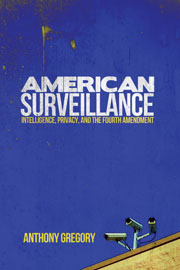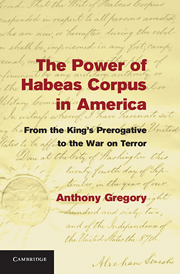In the summer of 2001, local police in Tempe, Arizona, suspected a grocery wholesaler of organizing a baby food–stealing ring. After September 11, the Phoenix police claimed they had “confirmed” the suspect “had significant connections to terrorist organizations, including al Qaeda.” The local authorities were able to get a national security warrant under the Foreign Intelligence Surveillance Act (FISA). The evidence they procured from bugging the suspect’s office and tapping his phone led to the man’s conviction and a ten-year prison sentence. He was never actually charged with a terrorism-related crime.
Surely the Tempe police could have waited and gotten the standard warrants. But just as surely, that would have been less convenient for the investigators. They would have actually had to demonstrate probable cause to a regular judge, instead of to a secret federal FISA court, which rubberstamps nearly every warrant request it receives and is accountable to virtually no one.
It appears that all the government has to do is assert that someone has terrorist connections and the customary safeguards of due process are swept away, regardless of whether there is any evidence of a terrorist connection. The baby food case illustrates how encompassing the war on terror has become. Recent reports of federal spying on such peaceful political activists as Quakers and ACLU members and use of the Patriot Act to combat online gambling also illustrate the problem.
Ever since the Bush administration’s secret, warrant-less NSA spying became publicized, its defenders have argued that Bush doesn’t even need to abide by FISA’s weak limits on his power. They insist that the president has all the authority he needs thanks to the Constitution’s Commander-in-Chief clause and Congress’s authorization of force against the 9/11 perpetrators, passed shortly after September 11. The Attorney General has implied that this authorization gives Bush even more power than would a more limited and precise Declaration of War on a specified foreign state. The entire world, in fact, is a battleground in this new kind of war, according to this argument, and the president can’t be limited in his power or the U.S. could be attacked again by terrorists. And given that the president has the Supreme Court–approved authority to detain “enemy combatants” without trial, surely he can listen in on some phone calls.
But if the president really has all this “inherent authority” to detain and spy on everyone without judicial review, then why did he need the Patriot Act? Why does he insist that the Patriot Act is a crucial, indispensable tool in the war on terror? What does it enable Bush to do that he doesn’t have the “inherent authority” to do without it? The Republican position on this is downright incoherent and suggests that the purpose of all this anti-terror legislation is not really to enable the president to do what he must do but could not do without it. Rather, it is to make the American people believe the administration is acting properly and democratically in doing what it, in reality, intends to do regardless of the law.
The top Democrats have a disturbing response. They argue that the executive powers granted by the FISA program, and further aggrandized by the Patriot Act, should have been sufficient for the war on terror. If not, the Democrats reassure us, they would have been just as happy as the Republicans to expand Bush’s powers if only he asked. In short, the problem with what Bush did is merely procedural, not moral. The first priority, at any rate, is to make whatever Bush has been doing legal by adjusting the law.
If any law is valid, the Bill of Rights and the Constitution (still the Supreme Law of the Land) should trump statutory law where there’s conflict. The Fourth Amendment is clear on the issue of warrants. They require probable cause, must be supported by oath or affirmation, and must describe with particularity the place to be searched and the persons or things to be seized. In every case the officer must provide to the magistrate enough facts and circumstances to demonstrate probable cause. He must swear to the court that the person about to be searched is worth searching. If he takes the oath dishonestly, he is guilty of perjury. And the government agent better have a very, very good idea what he expects to find.
The secret FISA courts do not meet this standard, and neither do the sneak and peak searches authorized by the Patriot Act. Instead, they allow investigators to snoop on Americans without any traditional court warrant, only a secret and unaccountable administrative or judicial decree. Laws like FISA and the Patriot abuse our privacy, system of checks and balances and constitutional government. These abusive laws must be repealed for the sake of American liberty.
Bush’s defenders have yet to show how effective the new powers have actually been in fighting terror. So far they’ve only been effective in nabbing common criminals and spying on ordinary Americans. Rather than proof of success, they offer the claim that the president obviously has these powers, and imply that any critical discussion of such important issues is a threat to national security. And yet we are still supposed to believe that they are not championing power for power’s sake.








